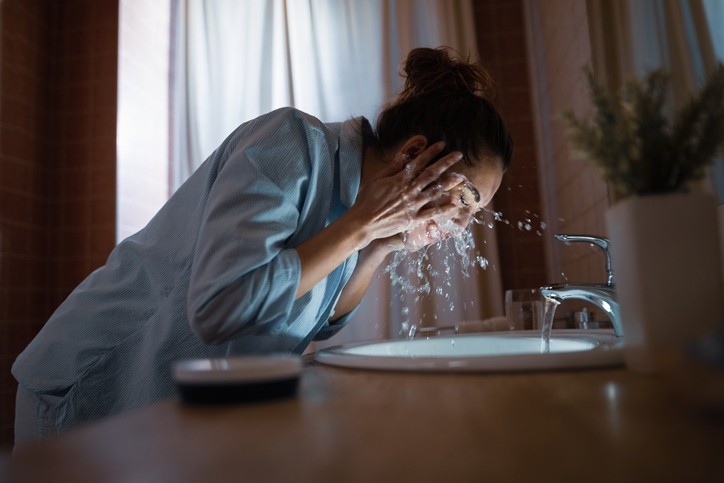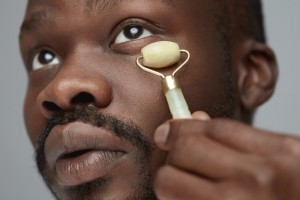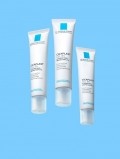Special edition: Holistic Health & Wellness – Formulating for Wellbeing and Anti-Ageing
'Twilight beauty' rituals to soar amid ‘major concern’ for wellness: WGSN

The ongoing coronavirus (COVID-19) pandemic has undoubtedly shaped the way consumers engage with beauty, impacting purchasing habits, product priorities and usage trends. And as health – physical and mental – became front-and-centre for many, wellness had taken on a new life of its own in the beauty space.
“Wellness is a major concern for many beauty consumers. Post-pandemic, consumers are concerned about their own health, immunity and want to manage their lifestyles to maximise their wellbeing,” said Jenni Middleton, director of beauty at trend forecasting firm WGSN.
And this was true for most beauty consumers, Middleton told CosmeticsDesign-Europe, though the wellbeing opportunity was particularly strong amongst older cohorts – notably Generation X and Baby boomers, aged 40 and 56+.
“These cohorts have been less financially impacted by the coronavirus than many younger demographics and therefore have more money to invest in their wellness,” she said.
‘Twilight’ beauty rituals for better sleep and mindfulness
Middleton said that, importantly, investment in wellness was “not just about physical health” but also about finding products that supported mental health and emotional wellbeing.
There had been a clear spike in products designed to help consumers get a good night’s sleep, for example – “fundamental to good health and wellbeing”, she said.
“People have become concerned about their sleep during the pandemic, and any product that can support that will uptick.”
Overnight beauty products that renewed and repaired skin while consumers slept had “grown in popularity”, Middleton said, as had other portfolio extensions like sleep sprays, balms and products that soothed consumers into a healthy sleep pattern.

Similarly, there was increased interest for beauty products that helped consumers disconnect from their working day – previously achieved via the natural decompression time of commuting to and from the office. And this, she said, offered an entirely “new space for beauty”.
WGSN had identified this opportunity as ‘Twilight Beauty’ – “helping people get ready to disconnect from their working day and move into their personal and social space”, she said, which also played into better sleep patterns.
“WGSN recognises that with these long-term social, political, environmental and economic challenges, consumers will be looking towards using beauty and personal care products to help them construct recuperative rituals into daily practices.”
Products that created “beauty rituals” and helped “bookend our days” she said, were set to gain considerable ground, particularly those that helped consumers transition from day to night.
Speaking in a recent WGSN webinar on the ‘Twilight Beauty’ trend, Middleton said the space was about “helping people shut the laptop and give themselves permission to relax” and transition between “the work and rest phases of the day”. For those consumers still going into work, she said twilight beauty products helped “wash away the dirt and contaminants of the day – mentally and physically cleansing mind and body, signalling the start of an evening”.
Skin care and body care played best into this wellness trend, she said, with pleasure and sensory experience exceptionally important, but there was also strong scope for hair care rituals that targeted mindfulness or offered a soothing routine and bathing products for extended relaxation.
Building ‘calm and contemplative’ moments and adding ‘sensory tools’
From a branding perspective, Middleton said this desire for wellbeing and wellness created clear opportunities for beauty brands and retailers to build products and spaces that helped “create moments of calm and reflection in the day” that supported overall emotional wellbeing and physical health.
This could achieved through building “calm and contemplative moments into brand spaces, both online and in real life”, she said, or designing products and services that filled a void in consumers’ lives.

Sensorial tools or textured products that replicated human touch and plugged the “touch famine” experienced by so many, for example, would do very well in today’s beauty market, she said.
“In twilight beauty rituals, tools and accessories are placed on a par with the beauty products themselves. Beautiful and pleasurable objects in their own right; sensorial tools help to focus attention and add tactility, as well as increasing the effectiveness of the product. Hand-crafted objects that can apply pressure, cleanse more efficiently or cool the skin will become an essential part of using these [twilight beauty] products.”
Within all of this, however, Middleton said cost would remain the challenge. “With many consumers financially impacted by the pandemic, this is a big issue that brands need to consider, especially as consumers will want to engage with brands that feel like a partner and are not commercially just benefitting without giving something back.”
![Push for progress; embracing frugality; mastering wellbeing; tech-ceptance; and intentional community are WGSN's 'big ideas' set to influence beauty over the next two years [Getty Images]](/var/wrbm_gb_food_pharma/storage/images/_aliases/wrbm_medium/publications/cosmetics/cosmeticsdesign-europe.com/article/2021/09/24/wgsn-2023-beauty-big-ideas-to-shape-industry-include-progress-wellbeing-and-tech/12851202-1-eng-GB/WGSN-2023-beauty-big-ideas-to-shape-industry-include-progress-wellbeing-and-tech.jpg)
![The immunity concept in beauty holds huge potential across topicals and ingestibles, with some clear pathways available to move successfully forward [Getty Images]](/var/wrbm_gb_food_pharma/storage/images/_aliases/wrbm_medium/publications/cosmetics/cosmeticsdesign-europe.com/article/2021/07/01/immunity-and-beauty-need-science-and-ingredient-innovation-say-experts-during-cosmeticsdesign-webinar/12613937-4-eng-GB/Immunity-and-beauty-need-science-and-ingredient-innovation-say-experts-during-CosmeticsDesign-webinar.jpg)
![The COVID-19 crisis will have a lasting impact on colour trends to come, with newfound appreciation for colours that reassure, balance and give consumers hope [Getty Images]](/var/wrbm_gb_food_pharma/storage/images/_aliases/wrbm_medium/publications/cosmetics/cosmeticsdesign-europe.com/article/2021/06/30/wgsn-colour-trends-2023-predict-reassuring-blues-and-planet-friendly-pigments/12608818-1-eng-GB/WGSN-colour-trends-2023-predict-reassuring-blues-and-planet-friendly-pigments.jpg)
![Active skin care offerings, protective hair care products and sleep-promoting kits are just some of the ways beauty (and food, drink and nutrition) brands can play into the immunity space [Getty Images]](/var/wrbm_gb_food_pharma/storage/images/_aliases/wrbm_medium/publications/cosmetics/cosmeticsdesign-europe.com/article/2021/05/27/immunity-and-beauty-future-to-see-active-skin-care-supplements-and-drinks-innovation-says-mintel/12513535-1-eng-GB/Immunity-and-beauty-future-to-see-active-skin-care-supplements-and-drinks-innovation-says-Mintel.jpg)

















